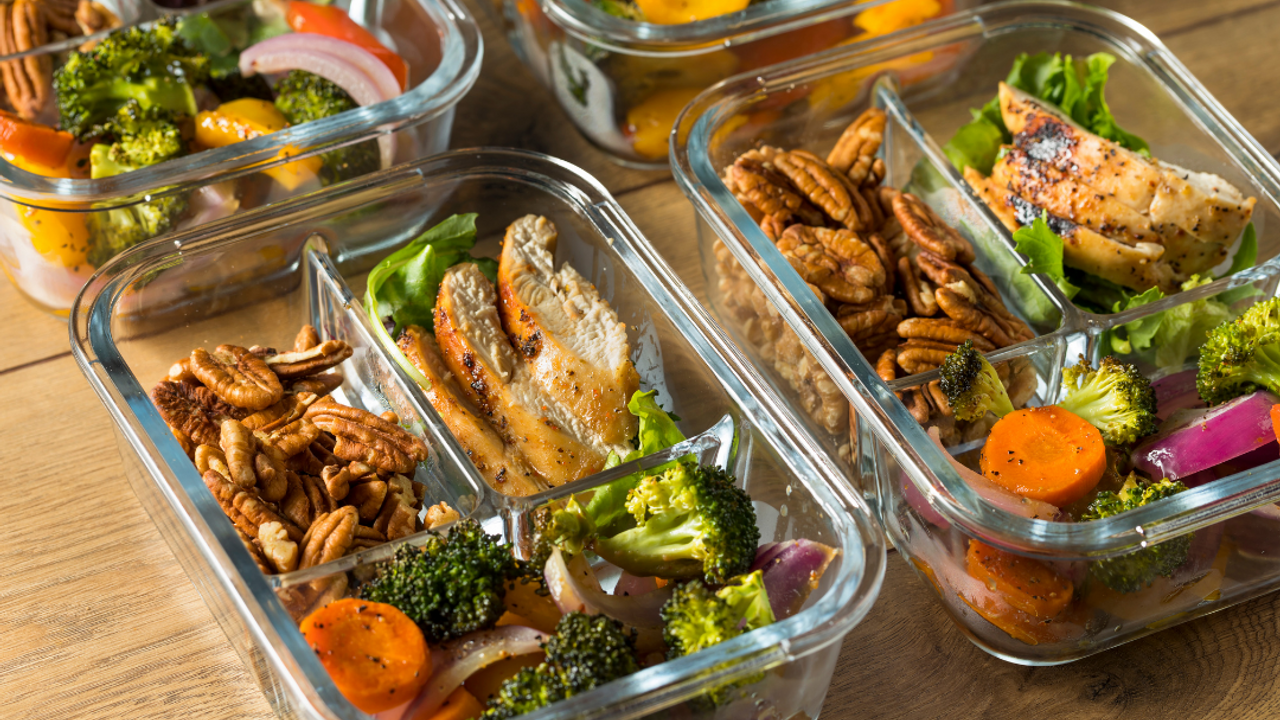6 Tips to Improve on Meal Prepping
Meal prepping is a great way to stay consistent with eating healthy choices. You can either prepare foods to be cooked on certain days, saving time on work nights, or you can actually pre-cook meals to be consumed throughout the week.
If you find yourself ordering out frequently, grabbing unhealthy snacks from vending machines or convenience stores, or spending too much time during the week cooking, then meal prepping is right for you.
Here are some tips to make meal prepping easier:
1. Dedicate a specific time for meal prepping.
The most common day for this is Sunday because most people have the time on Sunday and the food can be prepped for the work week. That being said, each person has a different schedule and you can do this whenever is best for you. You can block out a time of a few hours for grocery shopping, meal prepping, and cleaning up. I would block 3-4 hours at first.
2. Choose food items and recipes that will stay fresh in the refrigerator throughout the week.
Typically, this includes crunchy vegetables, starchy vegetables, whole grains, lean meats, sliced snacking veggies, hummus, etc. You can decide to cook separate items or full recipes. If you cook full recipes, then your week is simple. Just make enough servings to make it through the week. If you elect to cook separate items (for example: chicken, pork, rice, broccoli, cauliflower, brussels sprouts, and asparagus all in separate containers), then you can mix-and-match these items throughout the week to avoid eating the same exact meal everyday. There are a bunch of apps out there these days to look at recipes. Pinterest is one of the easiest ones to find and save recipes.
3. Use your meals to make a grocery list, and make sure you stick to your list.
This is important because you don’t want to go buy a bunch of random items that will sit around. You don’t want to fill your pantry and fridge with unnecessary options when you have already planned out the week. If you know you will snack, then build that into your prep and cut up some fresh produce or buy your favorite protein bars accordingly. You are much less likely to eat a bag of chips or a package of Oreos if they aren’t already in your house.
4. Consider using a slow cooker.
My wife and I use our slow cooker all the time. The total time for cooking may increase, but it’s passive time that we can spend doing other things. Simple recipes will allow you to dump all or most ingredients into the slow cooker and not have to worry about it for hours. When it’s done, just divide up your portions into containers and clean the slow cooker. Done.
5. Pack your meals or food items into clear containers and refrigerate or freeze them.
Clear containers allow you to see what is inside very easily. This simple step makes the meal more appealing. Ideally, you are only cooking for a length of time that all items can be left in the refrigerator to keep things simple. If your refrigerator looks crazy and you have a bunch of people in your house, you can also consider labeling each container with the name of the person to eat it and the date for consumption. The goal is to make enough for the week so that you do not need to order out but also so you are not throwing away meals because you cooked too much.
6. Be consistent.
While starting a new habit (or improving on a habit), you need to be purposeful and consistent. If you are tired on Sunday, still do what you set out to do. If you are busy on Sunday, maybe set yourself up and meal prep on Friday or Saturday instead of giving up for that week. In extreme situations where you are unable to give any time (out of town and get home late on Sunday), you could either prep and freeze before your trip or use a meal prep service (some examples near Baltimore are Territory, Jimmy’s Famous Meals, and John’s Fit Meals) for those weeks. They have a premium cost, but are beneficial when you cannot put in the work yourself.
Corey Hall, PT, DPT

